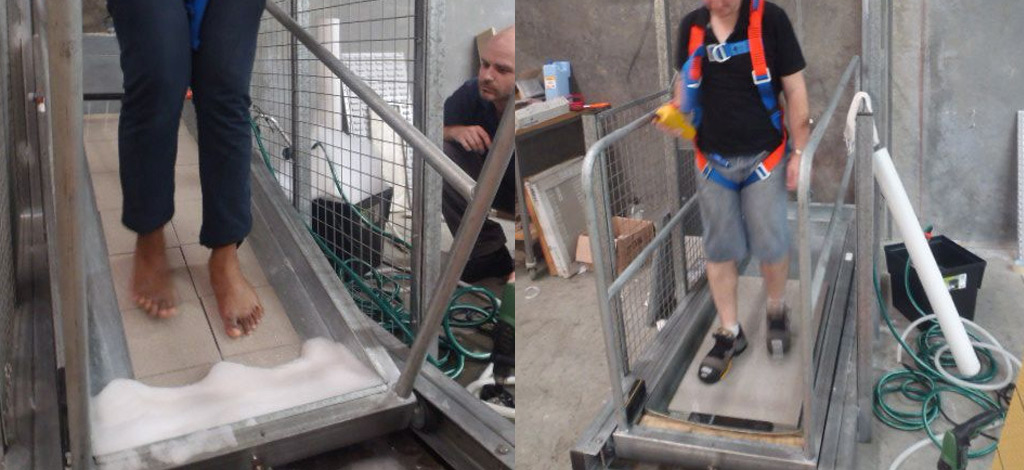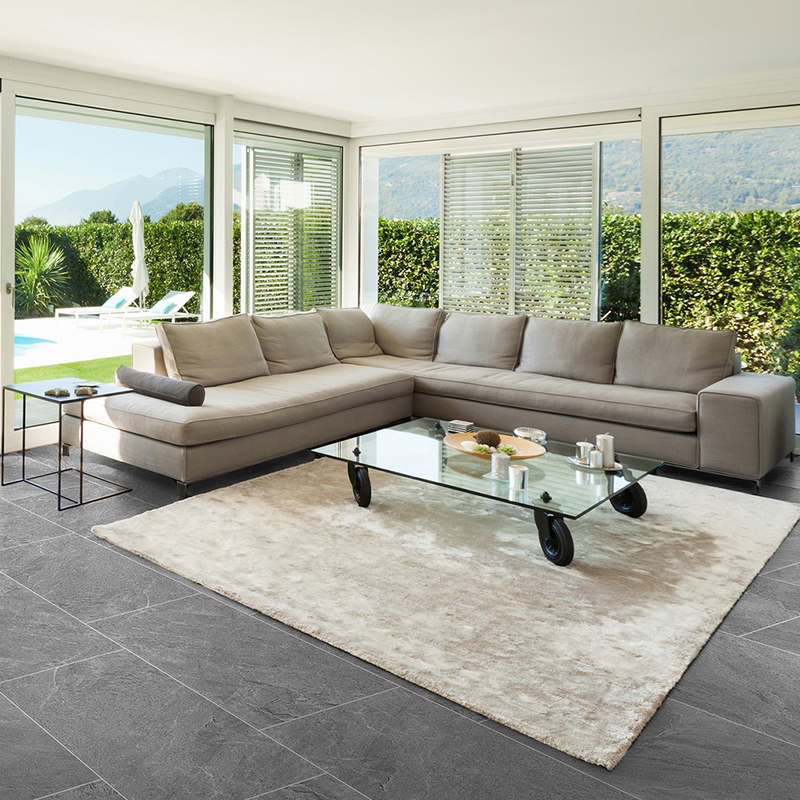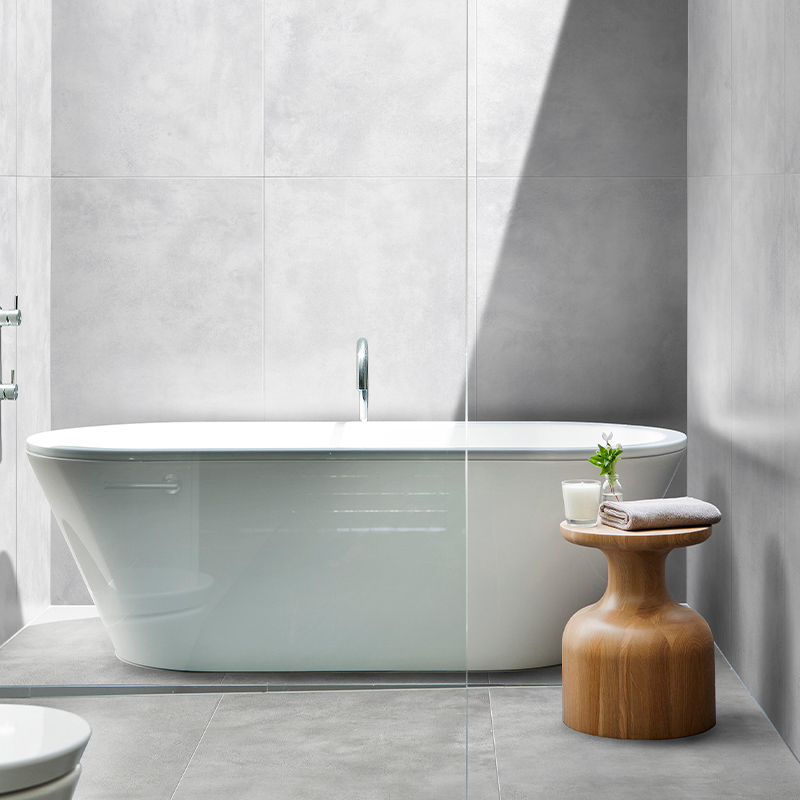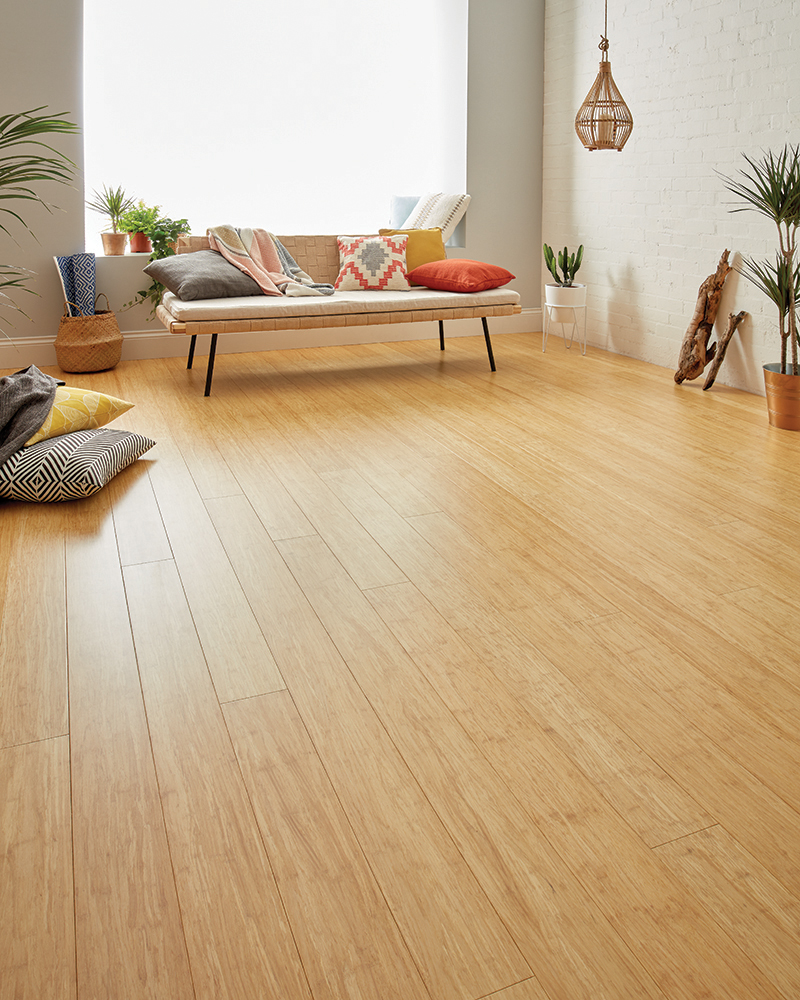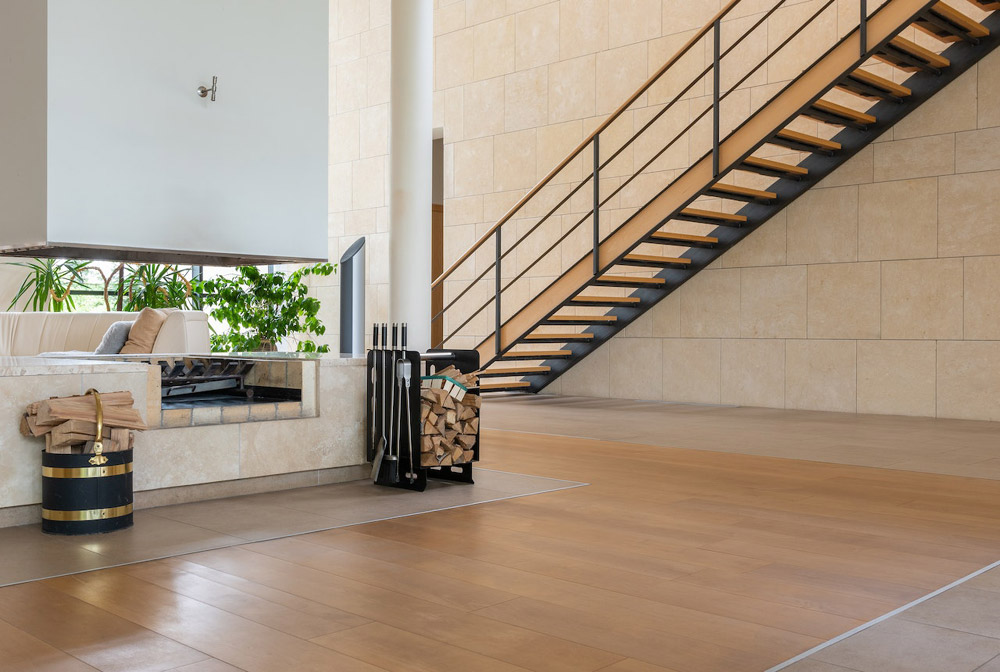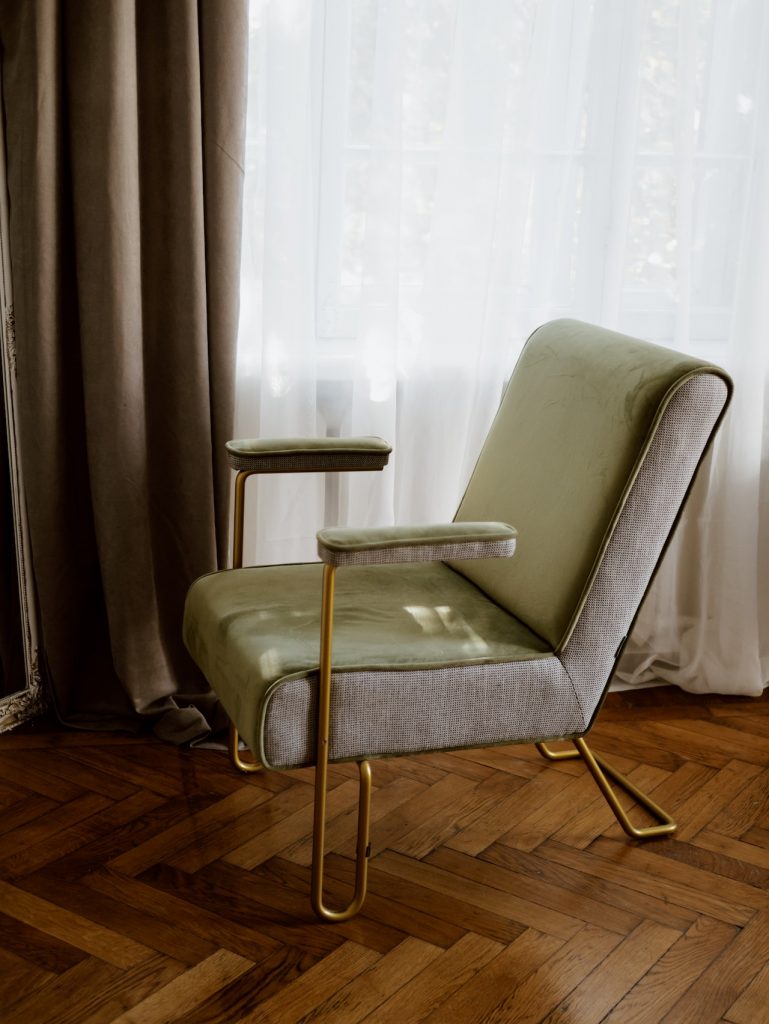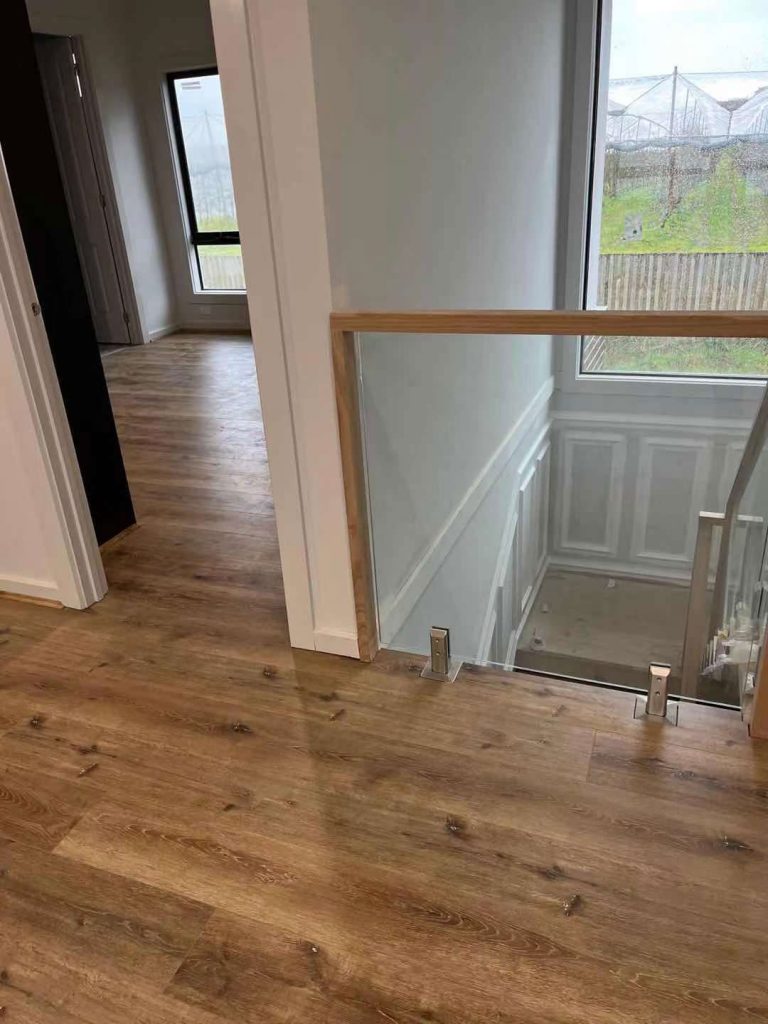When specifying the slip resistance for a floor surface within a building most people will refer to Table 3 of Standards Australia Hand Book HB 197, An Introductory Guide to the Slip Resistance of Pedestrian Surface Materials. The table provides a list of locations with corresponding pendulum and ramp recommendations. While many people feel safe in the knowledge that they have specified a complying oil wet ramp slip test (R Rating), many people are still unaware of the implications of specifying solely on this slip resistance test method.
The R Rating slip test is achieved by two people walking on a test panel contaminated with oil and wearing safety boots. The test panel is inclined until they slip or feel that they will slip on the test panel. The R Rating slip test is determined by the mean angle of inclination achieved and a correction factor based on 3 calibration boards that are also tested.
In contrast the pendulum slip test is portable and consists of a weighted foot with a test slider that swings down and slides across the surface wetted with water. The weighted foot comprises a spring loaded rubber test slider that exerts a prescribed force over the specimen as it slides across the surface.
The slip test methods used to specify a floor surface should simulate the intended conditions for normal usage in terms of the contaminant likely to be present and the footwear intended to be worn. The above table will assist in determining the most appropriate test for the area being considered.
The R Rating slip test which uses safety boots with large volumetric tread pattern and high viscosity motor oil, seems to be of little relevance for normal conditions. The R Rating slip test is more suitable for commercial kitchens and industrial areas, where people will be using specialised shoes and viscous contaminants are likely to be encountered. The pendulum test using water and a flat rubber slider is more appropriate for most public common areas, where the most likely contaminant is water and many people will be wearing flat soled shoes.
In many instances, R10-rated products have achieved the lowest pendulum classification, indicating an extreme risk of slipping in wet conditions and a potentially litigious situation. If you have specified an R rating, only the wet pendulum tests can be conducted onsite and is almost always the test that will determine the ultimate safety of a floor in legal proceedings.
Get a quote or visit our showrooms
You can call 03 9701 5569 / 9761 7119 to get a quote or visit our showrooms in Keysborough or Kilsyth today.


